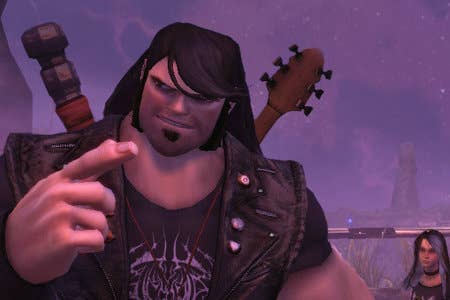Schafer: Brutal Legend "unfairly vilified because of poor messaging"
Double Fine boss explains how a more open approach could have helped rock adventure
Tim Schafer, Double Fine founder and Psychonauts deisgner, has admitted that muddled messaging ultimately harmed 2009 title Brütal Legend, and that he now aims for a more open approach to development.
"The part that I felt was most special about the game got unfairly vilified because of poor messaging," Schafer told Eurogamer of the game that combined RTS and action.
"I think it's the neatest thing about the game turning into a big negative for people, whereas if we'd brought them in the process early they would have enjoyed those parts about the game a lot more."
The game started out with Vivendi as a publisher, before being picked up and actually released by EA. Schafer explained the problem started with Vivendi's refusal to refer to the game as an RTS.
"Vivendi was like 'No. Absolutely not. We'll never say RTS, ever. Even if someone asks us if it's an RTS we'll say no.'"
"There was definitely a messaging problem with that game. That's one example of how the openness would have helped that game a lot. Say we were developing that and sharing our battle system with people before we launched; not only would people have known about it, but people would contribute ideas to it and embrace it, and feel like it was their idea instead of this nasty shock."
The game had a troubled life, with the move from Vivendi and Activision to EA causing legal issues. An out of court settlement was eventually reached and it was released on PlayStation 3 and Xbox 360 in October 2009, and achieved a Metacritic score of 82.
Schafer now has a different, more open approach to game development, and explained "we used to have this terror that if I go off-message and say the wrong no one will buy my game, which is not true."
"I've had this epiphany about how it doesn't hurt to be open. Let people see how it progress over time, so they feel the way we feel about the game. So they're really attached to them. You think people are going to reject you or your ideas about the game because they'll see something they don't like, but what actually happens is they embrace them more because they feel more included and more like a part of it."

